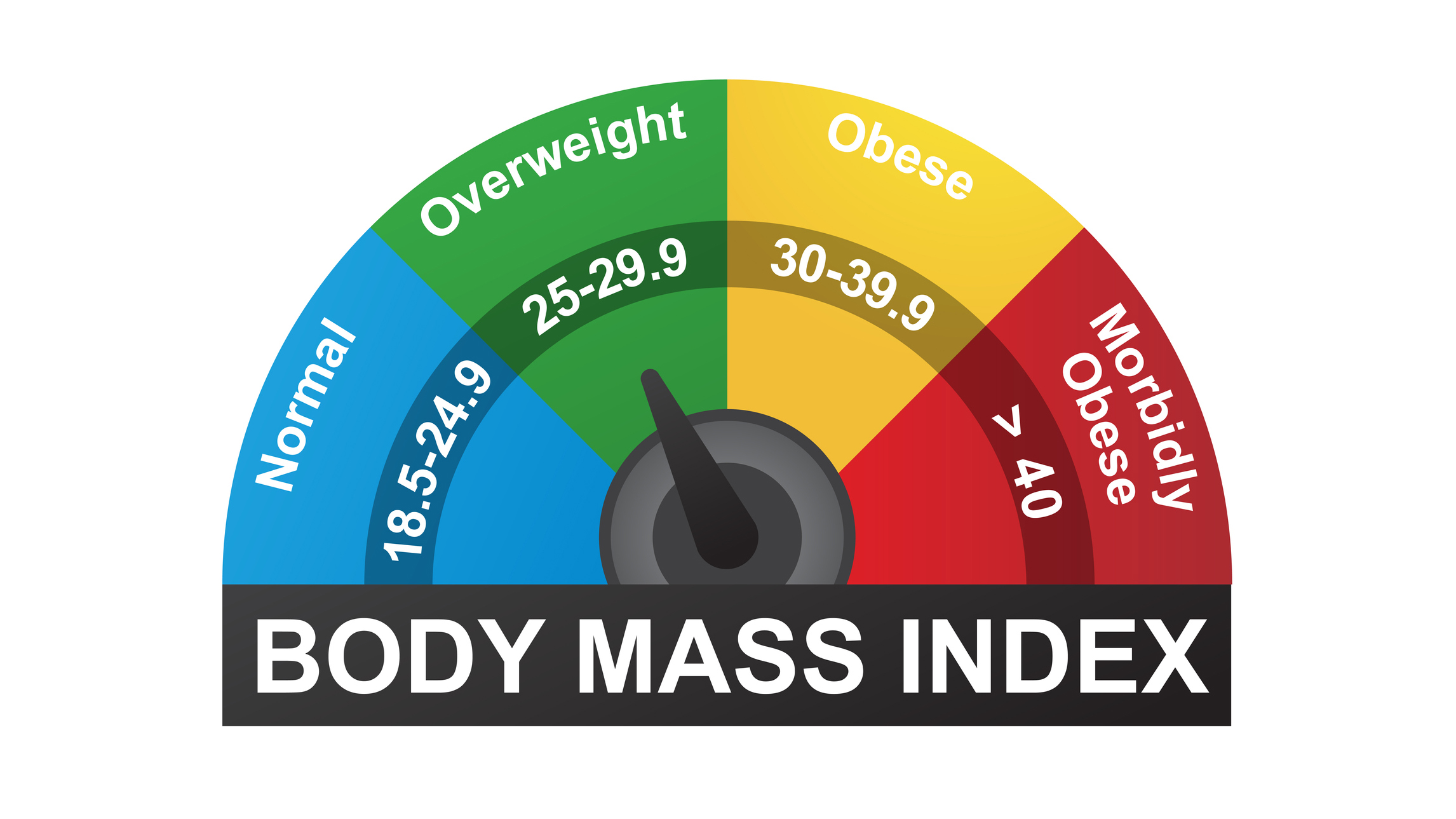How to calculate BMI: This is how to use your Body Mass Index for weight loss
This is how to calculate your BMI – and how to use it to help you on your weight loss journey


Start your week with achievable workout ideas, health tips and wellbeing advice in your inbox.
You are now subscribed
Your newsletter sign-up was successful
What is BMI? You've probably heard the term bandied around if you've been planning to start your weight loss journey in 2021. You've probably already learned it stands for Body Mass Index, and it's likely to be a number between 1 and 50.
However, you might not know how it relates to you, or what this tells you about your body. Body Mass Index is used by doctors and scientists as an indication of whether you're a healthy weight for your height. It's not always completely accurate, but it is a great starting point as a general indicator that you don't have any morbidities associated with obesity.
This is why lots of researchers use BMI as an indication of whether a population is obese, overweight, healthy or underweight: over a large percentage of people, BMI measurements are usually fairly accurate.
How to calculate BMI: What is Body Mass Index?
Body Mass Index is a number which can indicate if you are a healthy weight for an individual of your height. It's that simple.
Unfortunately, BMI is not a perfect measurement, but it's a good, simple way to indicate if you're a healthy weight. This is why it's often used in large-scale or population-level studies.

How to calculate BMI: Use an online tool
The formula for BMI is your weight (in kilograms) divided by height (in meters) squared. Fortunately, you don't need to start doing mental arithmetic to do this: plenty of online calculators exist, such as the link below used by the UK's National Health Service.
Once you have your BMI number, you'll know whether you are underweight, a healthy weight, overweight, obese or morbidly obese. The thresholds for each section are listed below.
Start your week with achievable workout ideas, health tips and wellbeing advice in your inbox.
- A BMI of less than 18.5 is considered underweight.
- A BMI of 18.5-24.9 is considered a healthy weight.
- A BMI of 25-29.9 is considered overweight.
- A BMI of 30-39.9 is considered obese
- Any higher is considered morbidly obese
How to calculate BMI: What do I do now?
Now you know your BMI, be aware as mentioned previously, it's not a perfect measurement. For example, a heavily-muscled bodybuilder might register as "overweight" or "obese" even though they are very athletic. However, as an indicator for the average person, BMI is a good yardstick.
If you are underweight, you might need to look at gaining muscle, increasing your intake of healthy foods and using resistance training exercises like push-ups, squats and pull-ups to help gain muscle.
If you're overweight or in one of the obese categories, you need to look at changing your diet, reducing your calorie intake and eating less starchy carbs to get back to the "healthy weight" category. You should also look at exercises which will help you lose weight, such as walking to lose weight or running our Couch to 5K plan.
You can also pop your BMI into services like Fitbit Premium or Apple Fitness+ to sync with your devices, which will keep track of your body's metrics and recommend workouts to match your goals.
Liked this?
Get Fit for 2021 with Fit&Well
As the sun rises on a brand new year, Fit&Well is here to help put last year behind you and make 2021 your happiest, healthiest yet. Here at fitandwell.com, we’ll be bringing you a wealth of workouts, diet plans and expert advice throughout January to help kick-start your health and fitness goals.
Matt Evans is an experienced health and fitness journalist and is currently Fitness and Wellbeing Editor at TechRadar, covering all things exercise and nutrition on Fit&Well's tech-focused sister site. Matt originally discovered exercise through martial arts: he holds a black belt in Karate and remains a keen runner, gym-goer, and infrequent yogi. His top fitness tip? Stretch.

